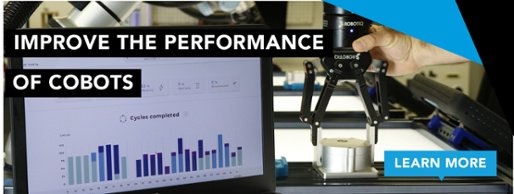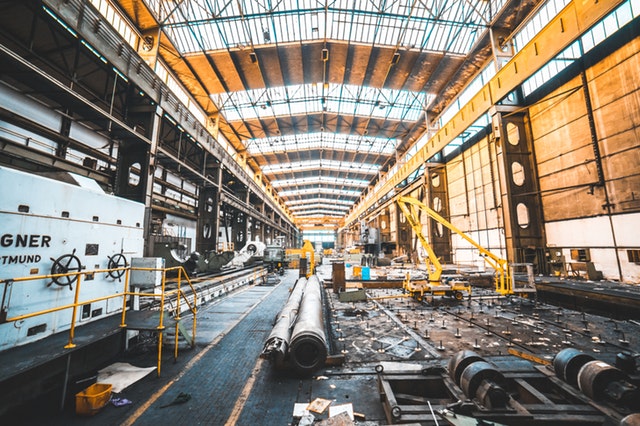Small Steps Toward Green Manufacturing: How to Get Started

Posted on Jan 21, 2020 11:02 AM. 5 min read time
Sustainability is a buzzworthy topic, but if companies want to genuinely embrace it, they have to take a comprehensive look at all their manufacturing operations. Here are some things for you to keep in mind when determining if a company is serious about its sustainability efforts or trying to get some short-term public relations momentum.
.jpg?width=600&name=building-development-energy-256297%20(1).jpg)
Green Manufacturing: Producing a Few Green Products is Not Necessarily Sufficient
For most companies, becoming more sustainable is a gradual process. Enterprises should call attention to that transition rather than describing themselves as sustainable after making a few products that fit the bill.
The archived nature of the content available online enables people to quickly go and see if a company has a long history of sustainability or if they've only made sustainability a recent focal point.
H&M has a sustainable clothing line, and its goal is to eventually only use recyclable or sustainably sourced materials. But, a documentary showed that the company burns usable clothes if it can't sell them. Those allegations make people dubious about H&M's sustainability efforts, especially since a major part of being sustainable means avoiding waste.
Making the clothes unwearable by burning them is not the only option, of course. The company could donate them to a homeless shelter or a domestic violence refuge where people could and would use them gratefully.
In cases like these where sustainability has not always been so important to a brand, companies should ideally admit their past mistakes and make changes that genuinely stop the most wasteful practices. Then, their sustainability efforts seem more authentic.
Sustainable Green Manufacturing Extends to Product Packaging
When companies commit to green manufacturing, they should not overlook the packaging used for the merchandise. More specifically, it's best to prioritize recyclable packaging and inform purchasers of whether the material is widely recycled.
In the United Kingdom and Ireland, many product packages give guidance on if a person can recycle it. They also tell consumers how to prepare the container for recycling, such as by flattening or rinsing it.
Amazon recently made people frustrated when it started using plastic packaging that's hard to recycle, causing recycling centers to report that the material jammed their machines. If the public does not know about the recycling options for packaging, they'll likely throw it away instead of even attempting to recycle it.
Positively, though, some companies go above and beyond to offer sustainable packaging. Nuud is a deodorant brand that puts the product in tubes made from 100% recyclable sugarcane, plus biodegradable, unbleached cardboard.
Also, Rothys shoes are made from recycled water bottles, and they ship directly in the shoeboxes. Showing its detail-oriented approach, Rothys uses a blue ribbon to tie the boxes closed, and that all-important component is recyclable, too.
Whether the packaging is for shipping materials or the product itself, sustainability matters. People appreciate when companies extend their sustainable measures to the package because doing that shows forethought.
The Best Green Manufacturers Rely on Metrics
Companies cannot merely set sustainability goals without going further to check progress. Energy consultants can give fresh perspectives to help companies meet their goals and learn how to increase their sustainable energy use. The results of such an assessment may show that a company should invest in solar panels, for example. Metrics could confirm how much energy and money the panels save.
Any change that a company undertakes for sustainability reasons should be backed up with metrics it can refer to at any time. As part of its sustainability initiatives, BMW used a variety of metrics to gauge progress and figure out the best ways to meet milestones. For example, it looks at emissions related to a product in use, as well as the emissions that occur during the item's production.
Similarly, Apple aims to eventually create all its products from recycled or renewable material. It's using a robot to get closer to that goal. The bot disassembles discarded iPhones and collects materials that Apple could use to make new phones. The robot can take apart 200 iPhones per hour, and it handles 15 models of the popular smartphone.
Apple won't confirm how much e-waste it contributes to the planet through its products. But, at least it's taking practical steps to conquer the problem. Metrics could help them track the robot's overall efficiency to learn if it gets faster over time or can disassemble some models more quickly than others.
When looking at metrics, companies need to be honest with themselves when it becomes clear some initiatives are not working, plus show a willingness to change. Often, metrics data gives businesses the first clues that sustainability initiatives may have some weak points to address.
Being Green Means Gauging The Effects on The Local Labor Market
Companies should realize that sustainability means treating the labor market well and paying them enough to live and thrive. Brands often receive unwanted attention when it comes to light that they rely on cheap labor to make their products.
A 2018 undercover investigation from The Guardian exposed a Chinese factory creating Disney toys. There, employees earned wages that were too low to support their families and worked grueling schedules that didn't abide by the country's labor laws or standards set by the toy industry.
Companies want to manufacture things as cost-effectively as possible, which often means relying on foreign or inexpensive labor. But, truly sustainable companies should support labor markets instead of exploiting them.
One possibility is for a company to invest in cobots. Those machines alongside humans to help people boost their production capabilities in responsible ways. A 10-employee Indian company that manufactures car parts increased their production levels by 100 components per day with help from cobots. And, people learned to program the machines in just a day.
Alternatively, an organization called Empowerment Plan teaches homeless parents how to manufacture sleeping bags that turn into coats. The project pays members of the homeless population to learn manufacturing skills. It also gives access to support, such as therapy and educational advancement programs. Empowerment Plan has so far created 80 jobs for homeless people in the Detroit, Michigan area.
What Does it Mean to be Green?
Sustainability is much more than "checking a box" to conform to societal expectations. A growing number of people are adamant that true sustainable, green manufacturing means companies taking a no-holds-barred look at how to create products while reducing ill effects on the environment, societies and employees, then deciding to carry out those methods.
Businesses must be open to scrutinizing all aspects of their manufacturing operations and potentially making drastic changes in support of sustainability. If they aren't, now is not the best time for them to take a sustainability pledge and act on it.
Instead, watch and learn from sustainability leaders in the manufacturing sector. This could prove invaluable for shaping future plans.





Leave a comment